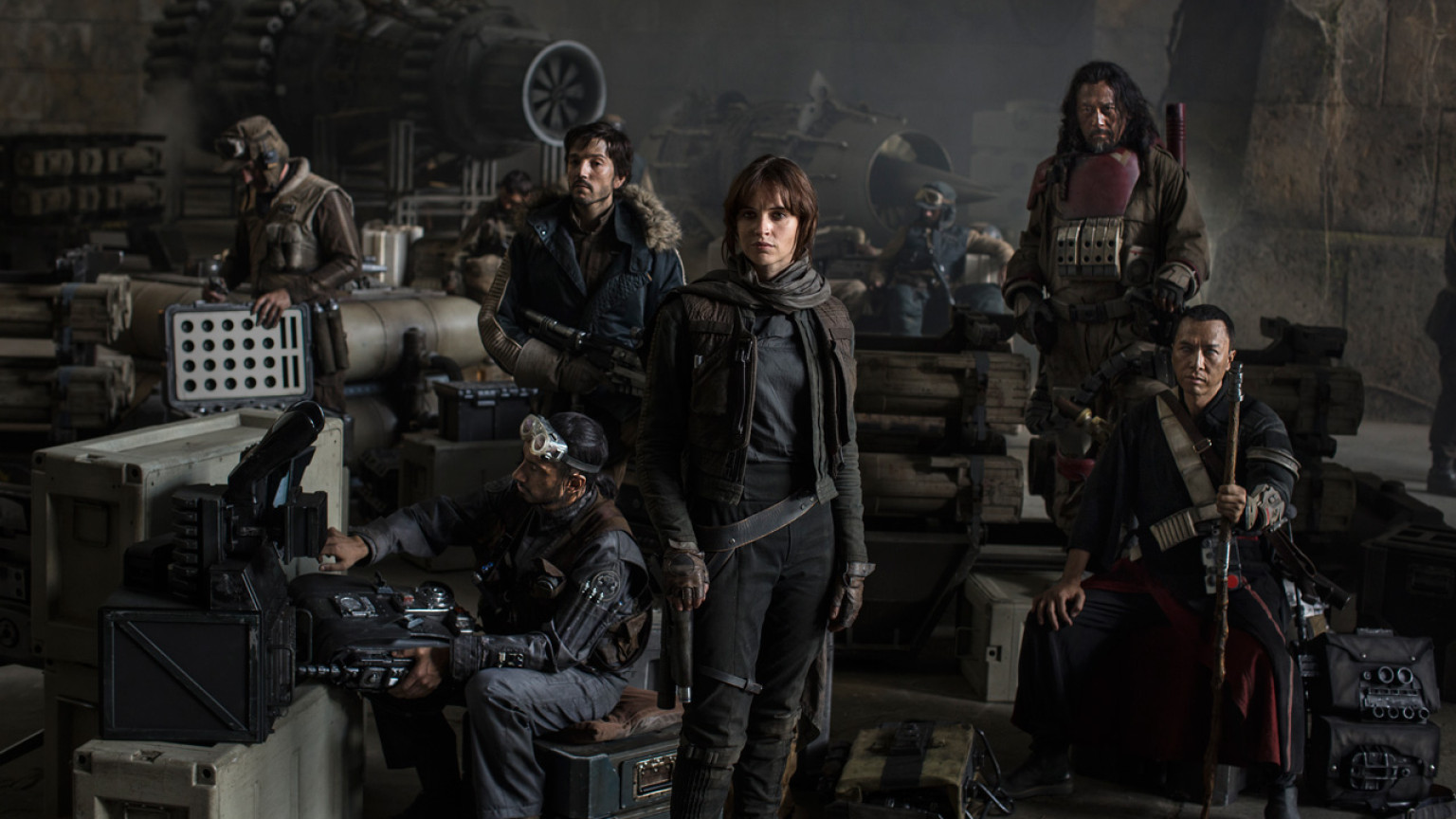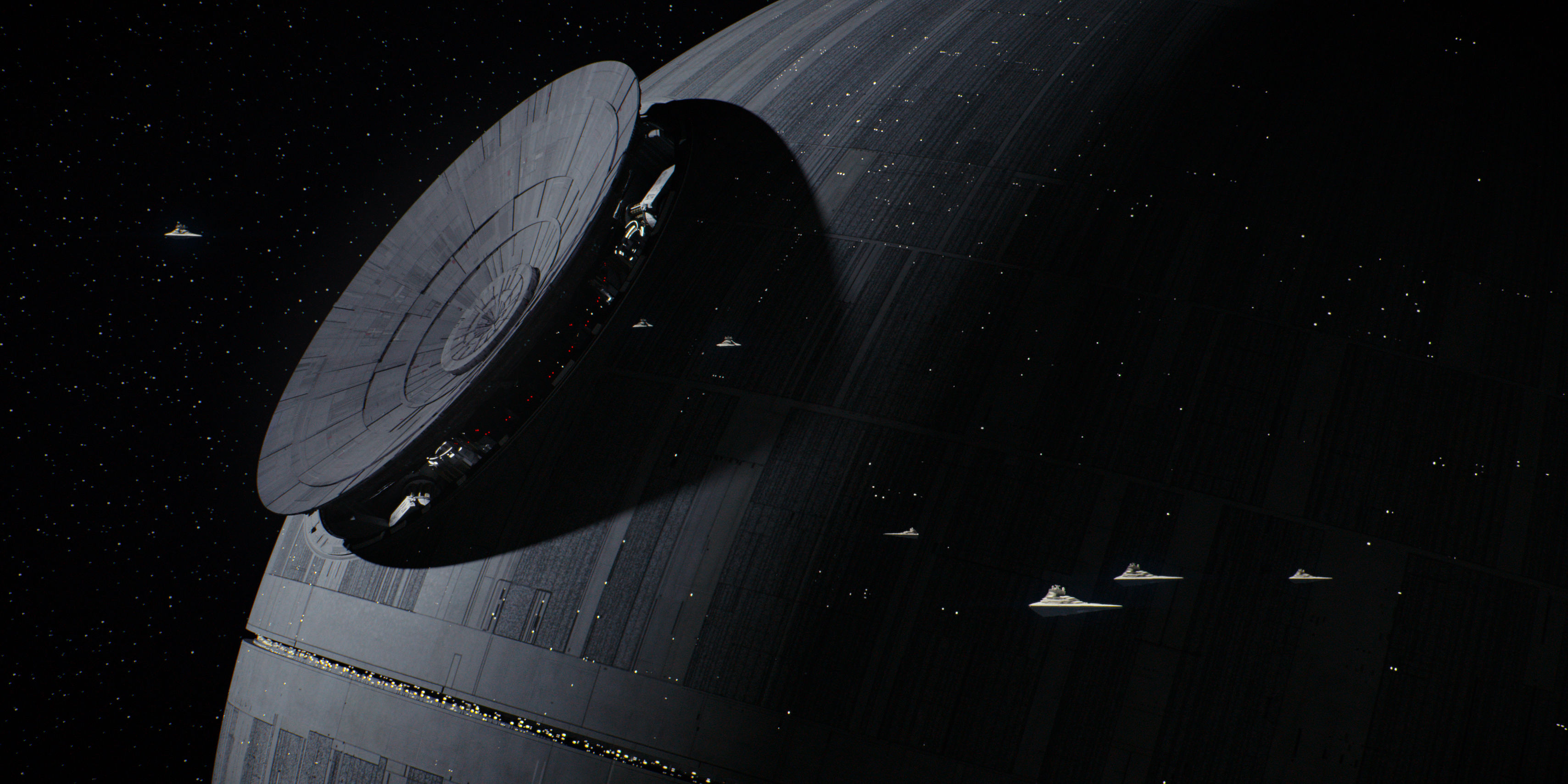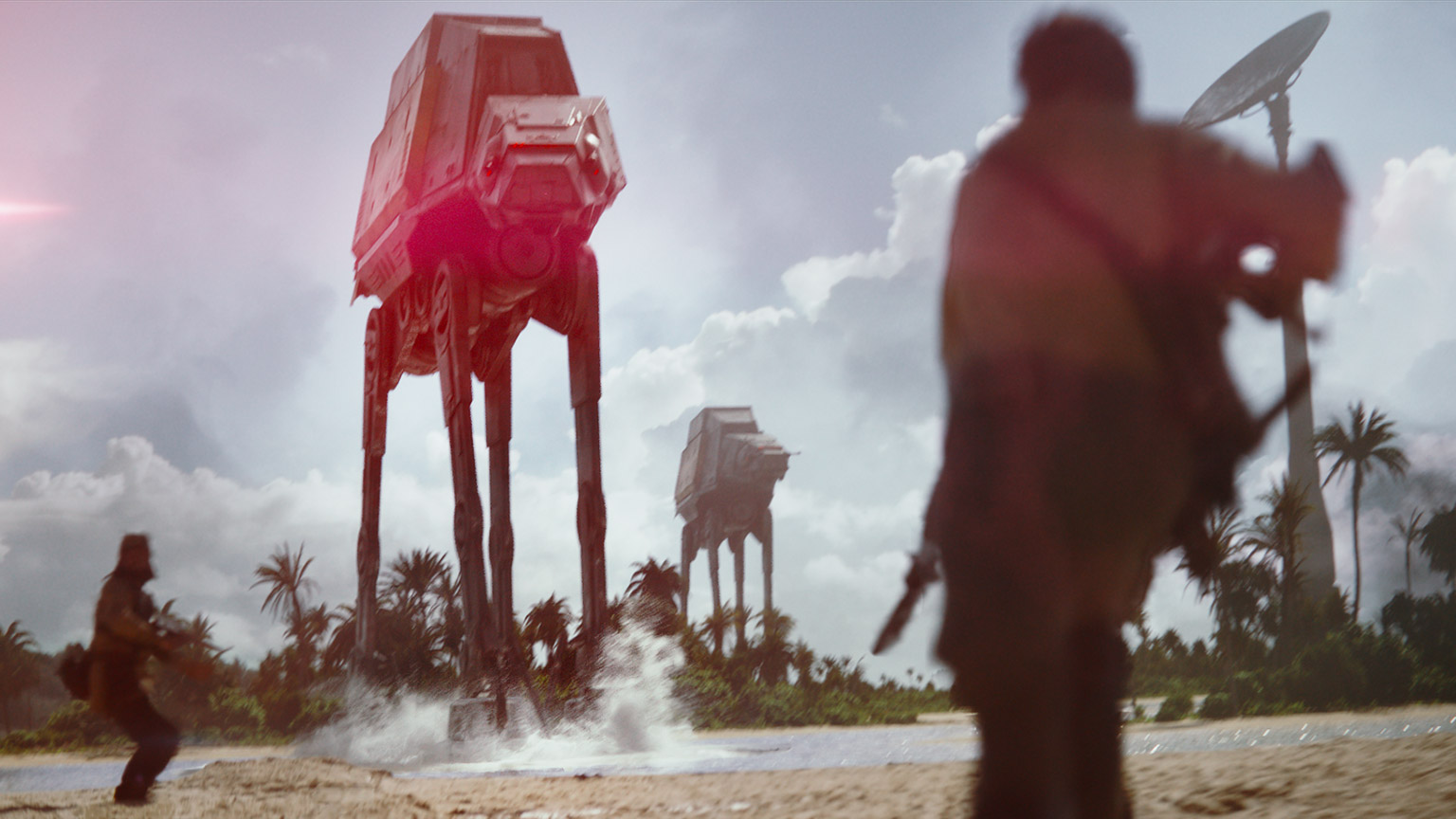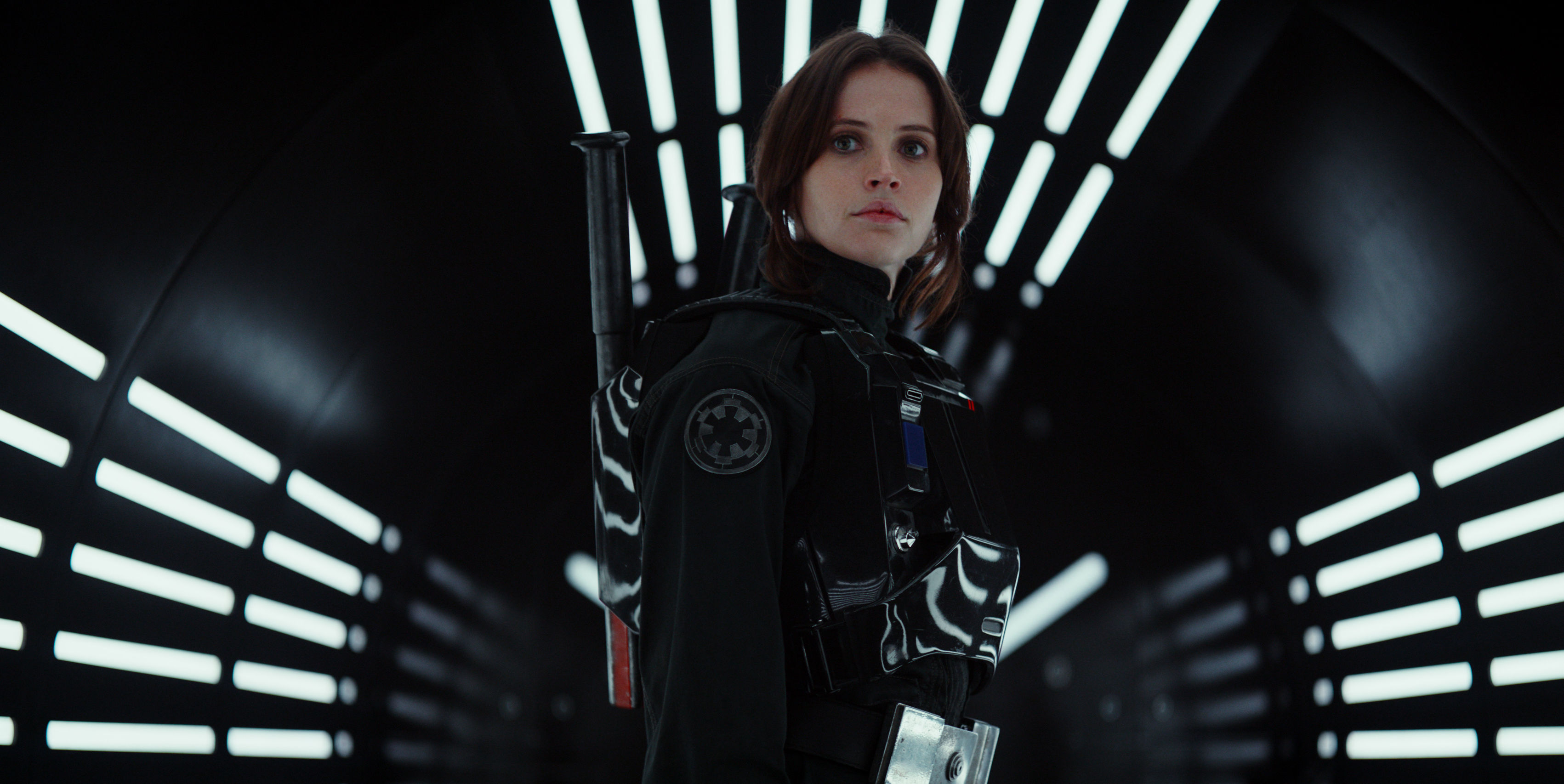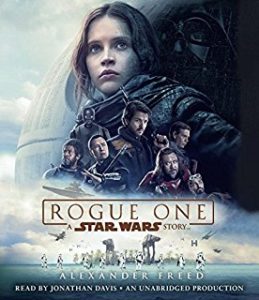 Film novelizations are, in their own way, just as tricky a needle to thread as film adaptations of novels. You’re taking someone else’s words and ideas, meant for one medium, and transposing them to another, hopefully doing them justice while at the same time adjusting and adapting them to fit the new medium. At their best, film novelizations can open up the world of the movie considerably, adding more scenes and characters and background information which couldn’t possibly be crammed into a two or even three-hour movie. At their worst, they’re a limp, lifeless transposition of the screenplay, lacking any of the energy or vitality which made the film entertaining. The Vonda N. McIntyre novelizations of Star Trek 2 – 4, or Peter David’s adaptation of The Rocketeer, are examples of the former; the Alan Dean Foster adaptation of The Force Awakens, the latter.
Film novelizations are, in their own way, just as tricky a needle to thread as film adaptations of novels. You’re taking someone else’s words and ideas, meant for one medium, and transposing them to another, hopefully doing them justice while at the same time adjusting and adapting them to fit the new medium. At their best, film novelizations can open up the world of the movie considerably, adding more scenes and characters and background information which couldn’t possibly be crammed into a two or even three-hour movie. At their worst, they’re a limp, lifeless transposition of the screenplay, lacking any of the energy or vitality which made the film entertaining. The Vonda N. McIntyre novelizations of Star Trek 2 – 4, or Peter David’s adaptation of The Rocketeer, are examples of the former; the Alan Dean Foster adaptation of The Force Awakens, the latter.
So where does Rogue One’s novelization fall? Somewhere in between. It doesn’t wildly expand the scope of the film, but it fills in just enough gaps in characterization and plot to make it, I’m shocked to report, the first novelization I’ve ever read that I enjoyed more than the film it was based on.
Rogue One, of course, is the first stand-alone “anthology” film in the Star Wars franchise. It tells the story of Jyn Erso and a ragtag group of rebels who, spurned on by a message from Jyn’s father, a reluctant Imperial weapons scientist, steal the plans for the original Death Star, as described in the opening crawl of A New Hope. I found the film good but not great, but the novelization fixed most of the issues I had with the movie.
The primary weakness of the film Rogue One is its lack of proper character development. Events move so quickly, especially in the first half of the film, that character arcs wind up feeling truncated and unearned. The Jyn Erso of the film is not in a place as a character to give the speech (“Rebellions are built on hope!”) she gives at Yavin Base. The Jyn Erso of the novelization, on the other hand, is. We get a much better sense of her arc, what’s driving her, what changes she undergoes as the events of the film unfold. We also get a better idea of who Cassian Andor is, what the Rebellion means to him, why he does the things he does and how he feels about that. Bodhi, Chirrut, and Baze are likewise fleshed out, to a lesser extent. Saw is still pretty much just Saw, though I’m not sure I’d want that any other way. If anything, Saw probably deserves an entire novel to himself, and I understand why author Freed might not have wanted to head down that rabbit hole.
Alexander Freed pens this adaptation of the screenplay by Chris Weitz and Tony Gilroy. Freed previously wrote Twilight Company, a book that’s nominally supposed to be a Battlefront tie-in, but which in function serves as our first real look at the gritty underbelly of the Rebellion, following a hardened group of soldiers from one engagement to the next. In theme and tone it’s actually very similar to Rogue One, and so Freed was an absolutely brilliant choice to do the adaptation. He succeeds wildly, bringing the same mix of brutal reality and ephemeral hope that made Twilight Company such a success. His prose is occasionally fanciful, but not in any meandering or self-indulgent sort of way. If anything, it’s a lovely contrast to the sharpness of the action and the dialogue, and an excellent look inside the heads of the characters.
Naturally, Freed’s prose can only go so far in describing the gorgeous cinematography and production design of the film, or in getting across the soaring beauty of the space battle above Scarif at the film’s conclusion. He’s more than up to the task, however. The words in your ears might not duplicate perfectly the visceral excitement of that conflict (or the shocking violence of the film’s final, much admired final sequence), but Freed adds a depth and a meaning to the visuals which take advantage of the strengths in his medium just as Gareth Edwards is taking advantage of the strengths in his. This is exactly what an adaptation should do, and Freed understands that perfectly. What’s more, some of the more, uh, distracting special effects (if you’ve seen the film you know what I mean) are obviously not an issue here. Some of the dialogue doesn’t land as well as it does in the film — particularly K-2S0’s brilliant dry humor — but without actors like Alan Tudyk reading to you, that’s to be expected.
Jonathan Davis narrates the audiobook, and I’m of two minds about this choice. On the one hand, Davis is an excellent narrator, veteran of over 300 audiobook recordings. Additionally, he recorded the narration for Catalyst, the Rogue One prequel novel I reviewed earlier this year, and did an excellent job there. Indeed, listening to him narrate the prelude of Rogue One and hearing his voices for Galen, Lyra, and Krennic again, made it seem a proper sequel to Catalyst, or even a bonus ending to that previous novel. And overall his narration is crisp and clear, occasionally prone to a more melodramatic pitch than I would prefer, but for the most part appropriately somber or emotional, as the text requires.
On the other hand, Davis’ female voices aren’t particularly strong, and Rogue One — unlike Catalyst — has a female protagonist. I always prefer audiobooks with female protagonists to have female narrators in general, and in this case it would have been doubly welcome. Davis does a fine job, but his Jyn sounds thin and weak — not at all like the powerful character depicted in Freed’s prose, or the fantastic, dynamic performance by the amazing Felicity Jones.
The production is on par with that heard in Catalyst; mostly appropriate use of music and sound effects, with a good mix between the narration and the “extras.” The music, as ever, can sometimes come in at odd or inappropriate moments, and especially given the grim nature of Rogue One’s story, the selection of certain heroic stings from John Williams’ original trilogy scores is occasionally wildly at odds with the scene being narrated.
Rogue One is the first Star Wars film to really focus more on the war than the star in the title, showing us a dirtier, less heroic, less black-and-white side to a conflict and a franchise which has been (rightly) criticized for its simplistic views of morality. The film feels rushed at times, sacrificing plot and character development for a zippy pace. The novelization, I’m happy to report, solves those problems almost entirely. As I said above, it’s rare that a novelization turns out better than the film it adapts, or makes the film itself better by virtue of its existence. But Alexander Freed’s Rogue One adaptation does both those things, and Jonathan Davis’ narration is, if not perfect, a very good interpretation of Freed’s words. I hope Del Rey keeps Freed around for more original novels, and I hope they choose as well as they did here when it comes time to adapt Episode VIII.
Note: A review copy of this audiobook was provided by Penguin Random House

